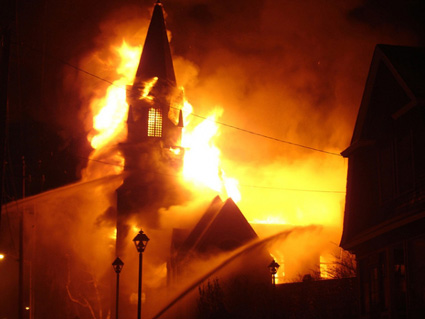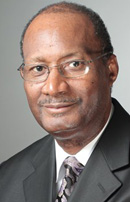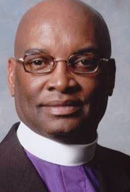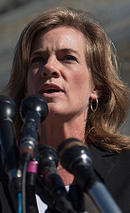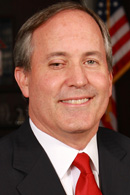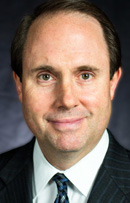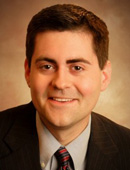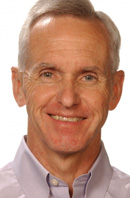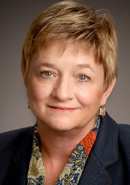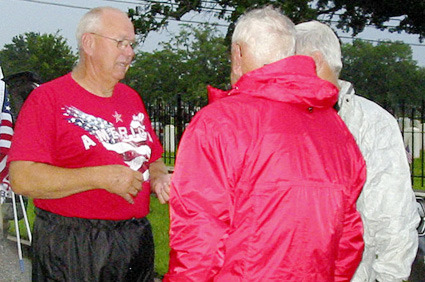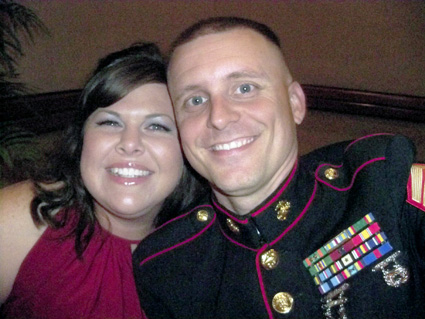Supreme Court will wade back into abortion debate
WASHINGTON (RNS)—The Supreme Court agreed to re-enter the national debate over abortion by deciding whether stronger restrictions placed on abortion clinics and doctors in Texas constitute an “undue burden” on women seeking legal abortions and should be struck down.
The restrictions—requiring doctors to have admitting privileges at nearby hospitals and clinics to meet standards for outpatient surgery centers—could leave the state with 10 clinics clustered in four population centers and along the Mexican border. A similar law in Mississippi threatens to close that state’s lone abortion clinic.
Decision will clarify 1992 ruling
Whatever the justices decide next year will help clarify the court’s 1992 ruling in Planned Parenthood v. Casey, when a divided court upheld the right to abortion while letting states impose restrictions that do not block women from obtaining services. The case is expected to be heard in March and decided in June.
“This will be the most important abortion rights case before the Supreme Court in almost 25 years,” said Nancy Northup, president of the Center for Reproductive Rights, which filed the lawsuit on behalf of several abortion clinics.
“It’s overdue,” said Steven Aden, senior counsel with Alliance Defending Freedom, which has submitted briefs on behalf of several states in the legal battle. “The Casey standard is unworkable and was ill-designed to begin with. We have more litigation now over the meaning of the Casey standard than we’ve ever had.”
By clearing up the ambiguity left by the 1992 ruling, the justices could serve notice to lower courts across the country and hand a victory to one side or the other in a debate that has raged since the Roe v. Wade decision legalized abortion in 1973.
Emboldened by the court’s most recent action on abortion—its 2007 ruling that upheld bans on “partial-birth” late-term abortions—state legislatures have enacted hundreds of restrictions in recent years. They range from 24-hour waiting periods and parental notification laws, mostly upheld by lower courts, to bans on abortion after six or 12 weeks, which courts have blocked.
“The politics of this has always been to push the court more and more to give deference to state legislators to restrict abortion rights,” said Kathryn Kolbert, director of the Athena Center for Leadership Studies at Barnard College, who argued the 1992 case before the court on behalf of Planned Parenthood of Southeastern Pennsylvania.
Abortions have dropped
At the same time, the number of abortions in the United States has dropped steadily, from more than 1.5 million in 1992 to slightly more than 1 million in 2011. That marked the lowest rate of abortions for women ages 15 to 44 since 1973.
The result of the laws and lawsuits is a growing disparity among states. California had 160 abortion clinics in 2011 and New York nearly 100, according to the Guttmacher Institute.
The Texas law, passed in 2013, forced more than half the state’s 46 clinics to close, and more are threatened by the latest appeals court decision. Wyoming has no abortion clinics. Mississippi, North Dakota and South Dakota each have one.
The Supreme Court has refused to re-enter the debate since 2007, turning away four efforts in the past two years by Arizona twice, North Carolina and Wisconsin to appeal lower court rulings striking down abortion bans or restrictions on medication abortions, admitting privileges and mandatory ultrasound tests. The Texas case has created a split among lower courts on how the Casey standard applies to doctors’ admitting privileges and clinics’ operating standards.
“Like so many Supreme Court decisions, it’s subject to interpretation,” said Neal Devins, a College of William & Mary law school professor. For years, state legislatures focused on restrictions such as requiring parental consent and waiting periods, he says, but more recently Republican legislatures have been “going well beyond the template of laws that Pennsylvania had enacted and Casey had approved.”
Abortion politics in 2016
The issue could play out during next year’s presidential election, just as it did in 1992. Then, the focus on abortion rights and restrictions helped Bill Clinton against President George H.W. Bush, polls and studies suggest. The latest Gallup polls show 80 percent support for legal abortion in at least some circumstances, so a renewed focus could help Democrats next year.
The court itself also has changed. No women served there in 1973, when Roe v. Wade was decided. Justice Sandra Day O’Connor helped craft what came to be known as the “Casey compromise” in 1992. If the court agrees to hear the Texas or Mississippi cases, three women—Justices Ruth Bader Ginsburg, Sonia Sotomayor and Elena Kagan—will join the debate.
Justice Samuel Alito’s role also would be notable, because he served on the federal appeals court that upheld Pennsylvania’s abortion restrictions before the case was appealed to the Supreme Court. He found no fault with any of the restrictions—even the one struck down by the appeals court majority that called for spousal notification.
But the case, like those before it, most likely will be decided by Justice Anthony Kennedy. He joined the plurality that crafted the undue burden standard in 1992 and is the only one in the majority then who remains on the bench. He was the deciding vote in allowing states to ban late-term abortions.
“I think it’s up to Kennedy,” said Priscilla Smith, a senior fellow at Yale Law School who lost that case in 2007 by a 5-4 vote. Noting almost a decade has passed since then, she said, “I don’t think Kennedy ever wants to take an abortion case if he can avoid it.”
Can Kennedy be swayed?
John Eastman, a conservative law professor at Chapman University in California, says the controversy over Planned Parenthood’s use of fetal tissue from abortions could help sway Kennedy again. The justices, he said, pay attention to current events “because they know their decisions have to find some support in the real world.”
The Texas law requires abortion clinics to employ doctors who have admitting privileges at nearby hospitals and to meet the same standards as ambulatory surgical centers. The state says it is intended to “improve the health and safety of women” while leaving at least one clinic operating in every population center—although the Rio Grande Valley would see reduced services, and El Paso residents would have to get abortions in New Mexico.
“There is no evidence that women will experience any materially different travel distances to obtain an abortion,” the state contends in its brief opposing a Supreme Court decision to hear the case.
The law’s challengers claim the restrictions are meant to limit abortions rather than improve women’s health and would force all but 10 clinics to close in a state where about 60,000 women seek abortions annually. “Women unable to make the trip to one of the remaining clinics are left with only two options: carry an unwanted pregnancy to term or attempt an illegal abortion,” their reply brief says.
The challengers lost the first round in court, after which the number of clinics dropped from 40 to 18. If the ruling by the U.S. Court of Appeals for the 5th Circuit is allowed to stand, an additional eight clinics would close, including the only one in West Texas. The court would let the lone clinic in the Rio Grande Valley remain open but with greatly reduced services. Clinics would remain in Houston, Austin, San Antonio and the Dallas-Fort Worth region.
Legal battle lines clear
The Supreme Court twice has blocked the law from taking effect while appeals continued, most recently in June by a 5-4 vote in which the court’s most conservative justices dissented. That makes the legal battle lines clear.
“Part of what each side is counting on is getting Justice Kennedy,” said Michael Dorf, a professor at Cornell Law School who clerked for Kennedy in 1992, when Casey was decided. “Both sides think in a perfect world that the court would move much farther—in opposite directions.”
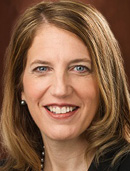
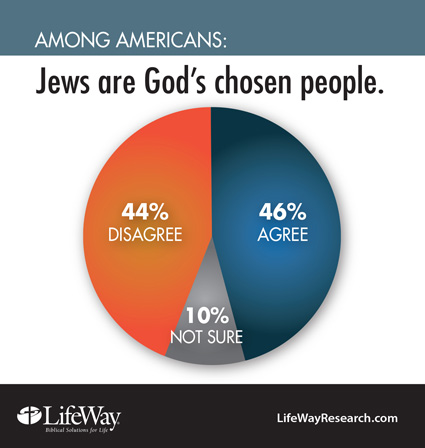 Those are among the findings of a study of American attitudes toward Israel and the Bible from Nashville-based LifeWay Research. As part of the study, researchers conducted two surveys of 1,000 Americans in general, along with a survey of 1,000 senior pastors of Protestant churches.
Those are among the findings of a study of American attitudes toward Israel and the Bible from Nashville-based LifeWay Research. As part of the study, researchers conducted two surveys of 1,000 Americans in general, along with a survey of 1,000 senior pastors of Protestant churches.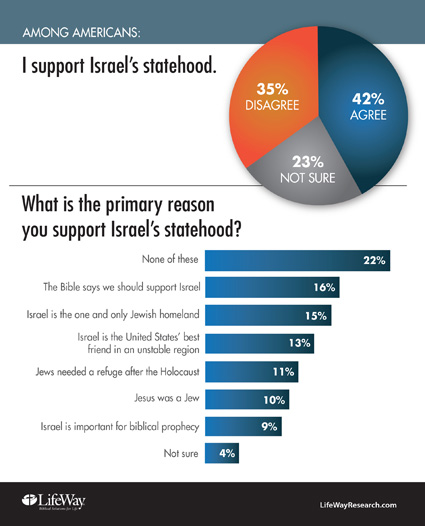 In contrast, 48 percent of Americans say God has a special relationship with modern Israel—fewer than the 53 percent of Americans who believe God has a special relationship with the United States, according to previously released LifeWay research. About four in 10 (39 percent) disagree God has a special relationship with modern Israel, while 13 percent are not sure. Evangelicals (70 percent) are much more likely to agree than Americans who don’t identify as evangelicals (38 percent).
In contrast, 48 percent of Americans say God has a special relationship with modern Israel—fewer than the 53 percent of Americans who believe God has a special relationship with the United States, according to previously released LifeWay research. About four in 10 (39 percent) disagree God has a special relationship with modern Israel, while 13 percent are not sure. Evangelicals (70 percent) are much more likely to agree than Americans who don’t identify as evangelicals (38 percent).